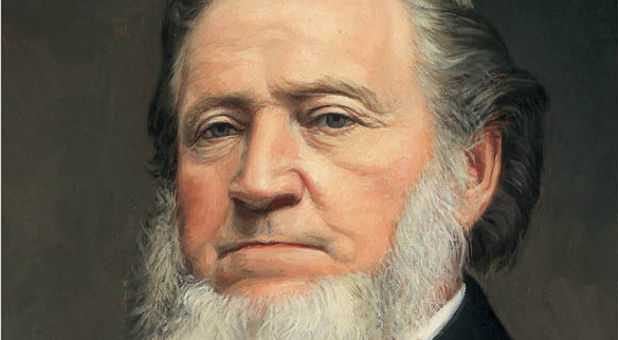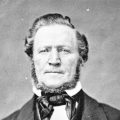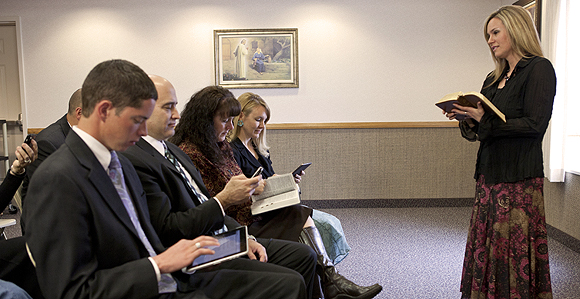Question
Gramps,
Brigham Young claimed that he wasn’t a prophet but a “Yankee guesser.” Did he really not think he was a prophet? If he didn’t think so, why should we?
Bri
Answer
Dear Bri,
I would encourage you to read the entire sermon to which you allude, which can be found in Journal of Discourses, volume 5, page 77. This sermon was given in July of 1857, at which time Johnston’s Army was en route to Utah; and regarding that situation President Young observed I am not going to interpret dreams; for I don’t profess to be such a Prophet as were Joseph Smith and Daniel; but I am a Yankee guesser; and I guess that James Buchanan has ordered this Expedition to appease the wrath of the angry hounds who are howling around him. [Journal of Discourses 5:77].
Now, we see in here that Brigham says he is not “such a prophet as were Joseph Smith and Daniel”. He is not, however, disclaiming the prophetic mantle entirely. In fact, earlier in the same sermon Young had preached:
Why I testify of these things is because they are revealed to me, and not to another for me. They were not revealed to Joseph Smith for me. He had the keys to get visions and revelations, dreams and manifestations, and the Holy Ghost for the people. Those keys were committed to him; and through that administration, blessed be the name of God, I have received the spirit of Christ Jesus which is the spirit of prophecy. Our testimony does not make this true, and the testimony of our enemies that it is not the kingdom of God does not make that true or false. The fact stands upon its own basis, and will continue so to stand, without any of the efforts of the children of men. [Emphasis added].
Now, Bri, will you excuse me if I take a brief detour from my answer and ask you a question? Did the person who gave you the quote about Brigham describing himself as a “Yankee guesser”, also provide the additional context that I have just provided? If not, do you have any thoughts as to why you might not have been given the entire context? I would definitely encourage you to keep doing your research; but you should consider that very often those who present a “warts-and-all history” are actually more interested in presenting a “warts-only” history. Don’t be afraid to go all the way back to the primary sources; and be careful about giving non-LDS authors the kind of blind faith that you might be reluctant to offer to the Church or its apologists.
Now, back to Brigham Young:
Brigham Young had a number of documented experiences manifesting various spiritual gifts. He was one of the first to demonstrate the gift of tongues in this dispensation. It is through him that we have Section 136 of our Doctrine and Covenants. He also was a fastidious recorder of dreams, consistently looking for divine meanings or messages in them; and he reported having experienced at least two dreams or visions of the deceased Joseph Smith. Indeed, Brigham (along with the rest of the Twelve) was first proclaimed a “prophet, seer and revelator” by Joseph Smith himself. At the dedication of the Kirtland Temple on March 27, 1836, the Prophet Joseph recorded,
I then called upon the quorums and congregation of Saints to acknowledge the Twelve Apostles, who were present, as Prophets, Seers, Revelators, and special witnesses to all the nations of the earth, holding the keys of the kingdom, to unlock it, or cause it to be done, among them, and uphold them by their prayers, which they assented to by rising. [History of the Church 2:417]
Nevertheless, Young seems to have considered Joseph Smith to be the prophet of this dispensation par excellence; and he was very uncomfortable likening his own mantle to Joseph Smith’s “natural” gifts. This sense of modesty occasionally led Young to downplay his own prophetic traits, such as when he described himself as “not a prophet, nor the son of a prophet” (perhaps, in that instance, drawing upon the prophet Amos’ similar description of himself as given in Amos 7:14). Young was also sensitive to claims that he had somehow usurped his authority over the Saints, which resulted in his making statements like the following:
I have never particularly desired any man to testify publicly that I am a Prophet; nevertheless, if any man feels joy in doing this, he shall be blest in it. I have never said that I am not a Prophet; but, if I am not, one thing is certain, I have been very profitable to this people. In the providence of God he has placed me to take charge of his flock, and they have been abundantly blessed under my administration. I did not desire to be their shepherd; but the great Shepherd of all the sheep placed me in this position, and there is no man on earth can truthfully say aught against the dealings of the leaders of this people with the Latter-day Saints. [Journal of Discourses 10:339]
While Young may have shied away from calling himself a “prophet”, his contemporaries definitely considered him as such. John Taylor–whose relationship with Brigham was often tense–defended Brigham’s prophetic mantle with the following statement, recorded by Wilford Woodruff:
Brigham Young, in saying that He did not profess to be a prophet seer and revelator as Joseph Smith was, was speaking of men being born “natural prophets” and seers. Many have the gift of seeing through seer stones without the Priesthood at all. He [Brigham Young] had not this gift naturally, yet he was an apostle and the President of the Church and kingdom of God on the earth; and all the keys of the holy priesthood and of revelation w[ere] sealed upon him, and the spirit and power of revelation was upon him daily. [Diary of Wilford Woodruff, Feb 11, 1861; capitalization, punctuation, and spelling modernized]
Wilford Woodruff, who seems not to have heard Brigham Young make the “son of a prophet” reference cited earlier, nevertheless affirmed in 1869 that:
It has been remarked sometimes, by certain individuals, that President Young has said in public that he was not a prophet nor the son of a prophet. I have travelled with him since 1833 or the spring of 1834; I have travelled a good many thousand miles with him and have heard him preach a great many thousand sermons; but I have never heard him make that remark in my life. He is a prophet, I am a prophet, you are, and anybody is a prophet who has the testimony of Jesus Christ, for that is the spirit of prophecy. The Elders of Israel are prophets. A prophet is not so great as an Apostle. Christ has set, in his Church, first, Apostles; they hold the keys of the kingdom of God. Any man who has travelled with President Young knows he is a prophet of God. He has foretold a great many things that have come to pass. [Journal of Discourses 13:165]
Since those who knew Brigham best–including Joseph Smith himself–had no problem referring to Brigham as a prophet, I think that as a Church we are safe in following their lead.
Gramps






